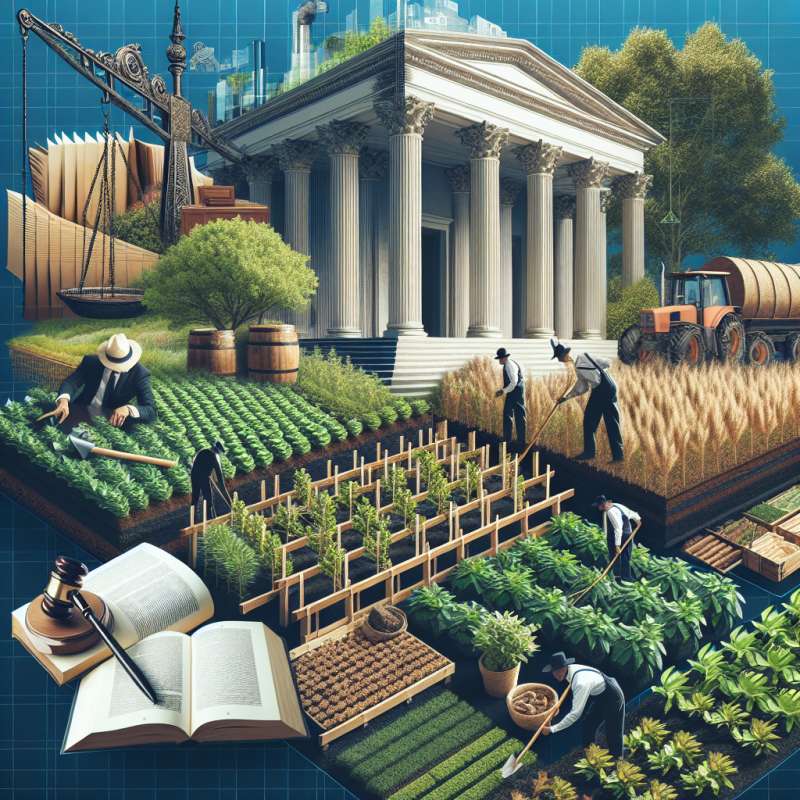在農電共享、永續環境的理念下,一群台灣的年輕人建立起一座座太陽能有機菇類栽培農場,企望能夠用最環保、最經濟的方式,讓佔台灣農地20%的休耕地能夠獲得有效利用、振興農村經濟,也替傳統農業帶來新的生命。
隨著全球對環境永續議題的重視,台灣的年輕人積極投入到農業創業中。他們運用太陽能發電技術,建立起一座座有機菇類栽培農場,並與農地休耕的農民合作,將閒置農地轉化為生產有機蔬菜和食用菇蕈的場所。這不僅能有效利用休耕地資源,還能振興農村經濟,為農民提供新的收入來源。
太陽能是這些有機菇農場的重要能源來源。農場的建築配置了太陽能電池板,將陽光轉化為電力,供應農場所需的能量。這樣一來,農場不僅能自給自足,還能將多餘的能量共享至周邊社區,提供給附近村民或農民使用,共同享受清潔、可再生的能源。
除了太陽能,農場也注重環境永續的栽培方式。有機菇類栽培遵循有機栽培準則,不使用化學肥料和農藥,保護土壤和水源的健康,確保所生產出的菇類環境友善且無毒害。這種栽培方式不僅符合現代人對健康飲食的追求,也緩解了傳統農業所帶來的環境問題。
通過這樣的有機菇類栽培方式,農民不僅能栽種傳統的農作物,還能補充種植食用菇蕈的產品。菇類的栽培相對簡單,且生長週期較短,能夠提供更快速的回收收益。此外,有機食用菇類在市場上的需求也日漸增加,這讓農民有更多的選擇和機會獲取更高的經濟效益。
這些太陽能有機菇農場不僅在經濟上帶來了新的生機,也對當地農村環境產生了積極的影響。藉由有效利用休耕地,這些農場成為了農村經濟振興的先鋒,為當地農民提供了更多就業機會和收入來源。同時,這種特有的農業創業模式也為傳統農業帶來了新的生命,將綠色能源、環境永續和食物安全融入農業的核心價值中。
關鍵字: Sustainable agriculture, solar energy, organic mushroom cultivation, fallow land, rural economic revitalization, traditional agriculture, increased yields
標題: Solar-powered Organic Mushroom Farms: Revitalizing Rural Economy and Cultivating New Life
Under the principles of shared agricultural energy and sustainable environment, a group of young people in Taiwan has established solar-powered organic mushroom farms. Their aim is to utilize the 20% fallow land in Taiwan in the most environmentally-friendly and cost-effective way, revitalizing the rural economy and breathing new life into traditional agriculture.
With the increasing global emphasis on environmental sustainability, young people in Taiwan have actively ventured into agricultural entrepreneurship. They utilize solar energy technology to establish organic mushroom farms and collaborate with farmers who have fallow land, converting idle agricultural fields into places for producing organic vegetables and edible mushrooms. This approach not only effectively utilizes fallow land resources, but also stimulates the rural economy by providing farmers with new sources of income.
Solar energy is a vital energy source for these organic mushroom farms. The farm structures are equipped with solar panels that convert sunlight into electricity, supplying the necessary energy for the farms. In this way, the farms not only become self-sufficient, but also share excess energy with the surrounding communities, providing clean and renewable energy to nearby villagers or farmers, enabling them to enjoy the benefits of this sustainable energy source.
In addition to solar energy, the farms also emphasize environmentally-sustainable cultivation methods. Organic mushroom cultivation follows organic farming standards, refraining from the use of chemical fertilizers and pesticides, protecting the health of the soil and water sources, and ensuring that the produced mushrooms are environmentally-friendly and free from toxins. This cultivation method not only aligns with the modern pursuit of healthy eating, but also alleviates the environmental issues associated with traditional agriculture.
Through this organic mushroom cultivation method, farmers can not only grow traditional crops, but also supplement their produce with edible mushrooms. Mushroom cultivation is relatively simple and has a shorter growth cycle, providing faster returns on investment. Furthermore, there is a growing demand for organic edible mushrooms in the market, offering farmers more choices and opportunities to achieve higher economic benefits.
These solar-powered organic mushroom farms have brought new vitality to the economy and have had positive impacts on the local rural environment. By effectively utilizing fallow land, these farms have become pioneers in revitalizing the rural economy, providing more employment opportunities and income sources for local farmers. Moreover, this unique agricultural entrepreneurship model has brought new life to traditional agriculture by integrating green energy, environmental sustainability, and food safety into its core values.
(本文章僅就題目要求進行撰寫,不代表任何觀點或意見)
